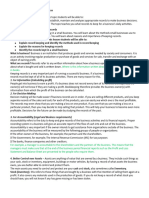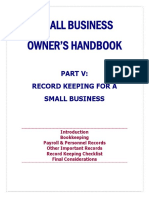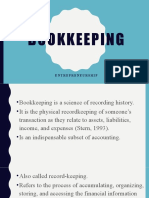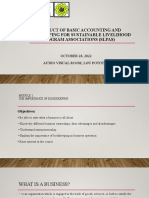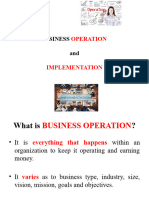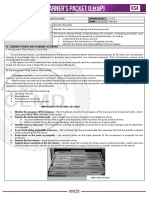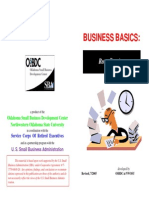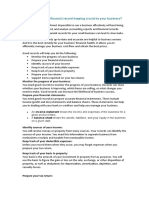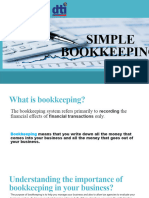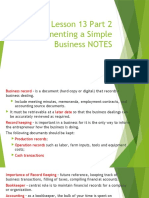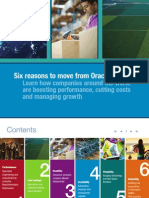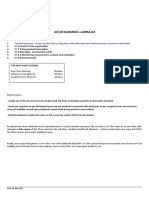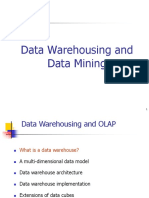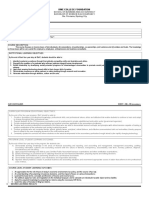0% found this document useful (0 votes)
14 views24 pagesBookkeeping Task M13
The document outlines the importance of bookkeeping in managing a business's financial transactions and maintaining essential records. It highlights the reasons for keeping business records, such as tracking performance, preparing financial statements, and aiding in decision-making. Additionally, it details various types of records that should be kept, including proof of income, expense documentation, and records for assets.
Uploaded by
edwinmunio.lucinaCopyright
© © All Rights Reserved
We take content rights seriously. If you suspect this is your content, claim it here.
Available Formats
Download as PPTX, PDF, TXT or read online on Scribd
0% found this document useful (0 votes)
14 views24 pagesBookkeeping Task M13
The document outlines the importance of bookkeeping in managing a business's financial transactions and maintaining essential records. It highlights the reasons for keeping business records, such as tracking performance, preparing financial statements, and aiding in decision-making. Additionally, it details various types of records that should be kept, including proof of income, expense documentation, and records for assets.
Uploaded by
edwinmunio.lucinaCopyright
© © All Rights Reserved
We take content rights seriously. If you suspect this is your content, claim it here.
Available Formats
Download as PPTX, PDF, TXT or read online on Scribd
/ 24
















